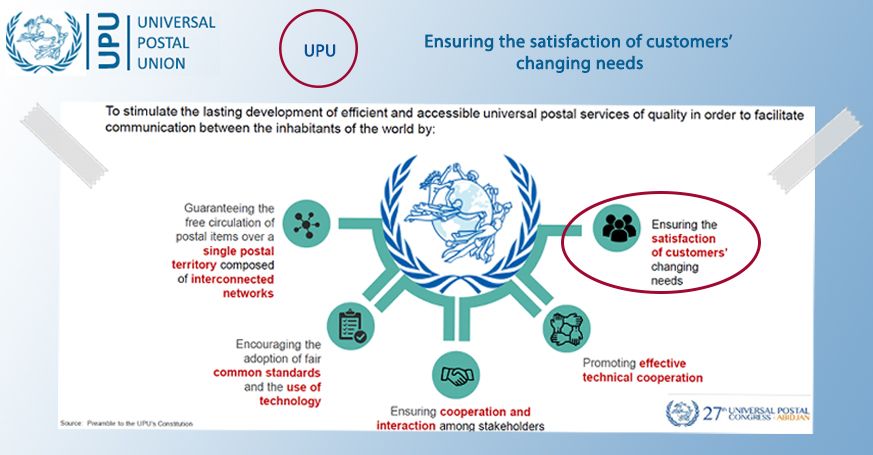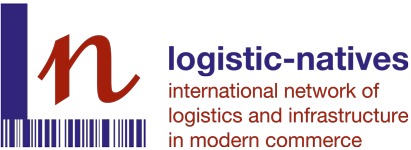UPU: Opening to wider postal stakeholders / Ensuring customers changing needs are satisfied

UPU: Opening to wider postal stakeholders / Ensuring customers changing needs are satisfied
By interconnecting the #postalsector to create a single #globalpostalterritory, the #UPU is a key enabler of the #economy and #trade. Companies of all sizes use postal services to build their #business, supply goods and receive payments. All levels of society rely on #postalservices for public communications.
Vulnerable users and citizens in rural remote areas need postal services to remain connected in an increasingly #digitalworld. The #postalnetwork, administered, supervised, and updated by the 192 UPU member countries and their designated postal operators, plays an essential role in ensuring that the right to communication can be exercised, and in promoting territorial, social, and economic #cohesion.
Letter mail has been increasingly replaced by electronic communication, while #ecommerce has led to significant growth in #parceldeliveryservices. For the UPU member countries, maintaining a clearly defined form of universal postal service for all citizens worldwide requires a certain level of national, regional, and global flexibility. Collaboration and #stakeholderinterconnectivity is the key to upholding and adapting essential #postalinfrastructure on a global scale.
While in recent years regulatory intervention has focused on letter mail services, the UPU’s #digitalstrategy, the growth of ecommerce, and now the dual green and digital transitions, have made the delivery of goods and merchandise the key focus of attention for #deliveryoperators and UPU member countries.
Faced with customers‘ changing needs, interconnected postal networks are becoming increasingly vital to ensure the quality of service, innovative services, and the global interoperability of letter and parcel delivery operations. The use of #commonstandards and technology increases clarity and legal certainty and may lead to lower costs and fewer interoperability issues.
Wider stakeholders, such as senders, electronic interfaces, and digital commerce-related providers who use alternative business models and draw on the collaborative economy, play an important role in ensuring cooperation and interaction along the postal value chain. Without their direct participation, customers‘ changing needs cannot be addressed and satisfied.
While the postal network is extending its reach upstream and downstream due to the dual green and digital transition, the wider stakeholders, UPU members and DOs will need to be aligned and use the UPU as a consolidator, facilitator, and common denominator in order to create an #infrastructure based on postal sector networks.
join in the discussion?
Click here for the LinkedIn-Article.

Walter Trezek
Document Exchange Network GmbH

